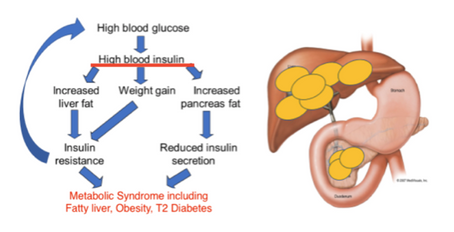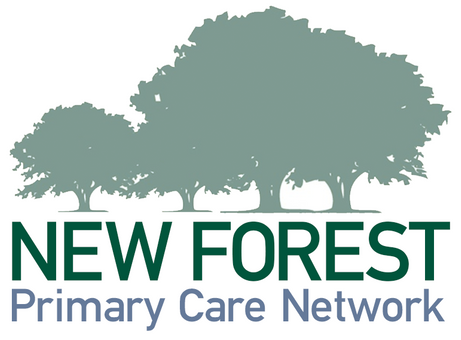Overweight/Obesity: Weight Management
You may have been directed to this page because you would like some support in weight loss.
It is worth having a think about why this is important to you? What would weight loss mean for you, in the context of your own life and health?
Broadly speaking, we use BMI and waist circumference as markers of being overweight or obese. We know that these don't tell the whole story and there are clearly other factors involved, but it can be a helpful marker of RISK of disease, underlying health problems and metabolic syndrome. They are easy factors to measure and compare against your own previous markers, which is why we use them:
High Risk Group:
Overweight BMI > 25
94cm (37 inches) for men
80cm (31.5inches) for women
Trying to lose weight if you are overweight or obese is not easy. Genetics and your environment play big roles, and we know from many studies including those in patients following surgery for weight loss, that there is a complex interplay of hormones. Losing weight can be even harder if you have more weight to lose. While finding a way to have a deficit in calories is ultimately the key in weight loss important, how we choose to do this means weight loss is not always as simple as "calories in versus calories out".
The types of nutrients we choose can have a big impact e.g. protein and healthy fats increase sense of fullness, where as sugar is highly palatable and so may leave us wanting more. Having good nutrition from real food can also offer other health benefits too!
Changing behaviour and habits is really hard for all of us. It is important to acknowledge that stressors, work, family, home, finances, previous life experiences will all play a role in how we currently live our lives and will create challenges and barriers to any changes we would like to see: it is not just about 'willpower'! Finding a nutrition pattern that works for you, and you can stick to as part of your own lifestyle is really important.
Good science continues to teach us more about metabolic health, the role of hormones and different types of nutrition in weight loss. The great news is, that no matter your genetic make up or background in life, there may be an area of your life that with some different changes or switches, could help improve your physical health, mental health, general wellbeing and in some cases reverse the condition you have been diagnosed with!
What Role Do Hormones Play?
- Insulin is the master hormone. Insulin both stores glucose in the liver as both a 'glucose store' (glycogen) but also stores it as fat. Importantly, we cannot burn fat when insulin is circulating at high levels.
- Cortisol (stress hormone) releases glucose from stores for the 'fight or flight' response
- Thyroid hormones alter your metabolism
- Leptin in the gut can impact satiety (feeling hungry) - can be affected by sleep
See Dr Dan Maggs' video below
Dieting and exercising but struggling to lose weight? Dr Dan Maggs (GP) expains why looking at INSULIN might help with long term sustainable weight loss and its not just calories in vs calories out.
Dr Dan Maggs (GP) discusses some of the medical problems that could contribute to difficulty losing weight
Very High Risk Group:
Obese BMI > 30
102cm (40inches) for men
88cm (34.5 inches) for women
Council Funded Weight Loss Service
You can self-refer by clicking on the logo above or by calling 0800 054 1190. You are eligible if your BMI is over 30 (or over 27.5 if you are from an ethnic minority background or have an underlying medical condition including Diabetes and Coronary Heart Disease - full list available on Gloji website).
So where is the good news?
What can I do about it?
Understanding hormone interactions teach us that we can influence how our body's function. Avoiding crash 'diets' and making lifestyle changes that work for you, in your specific life circumstances, can help with more sustainable weight loss and improve your overwell wellbeing. The following areas are all important and not only can they support weight loss, but improve general health and wellbeing.
- NUTRITION: Eat ‘real food’, avoid processed foods, lower sugary foods and starchy carbohydrates. Include essential 'healthy' natural fats. Our real food, lower carbohydrate page gives some helpful information on different aspects of healthy eating and drinking. There are links to some alternative switches too.
- PHYSICAL ACTIVITY: Move more, be less sedentary. Every small change helps.
- STRESS: Reduce stressors on mental and physical health
- SLEEP: Optimise sleep - the impact of this is often forgotten about. Check out our website sleep resource as well as the Sleepstation information on sleep and weight management.
Things to Consider?
- Types of nutrients - protein and healthy fats can increase fullness
- Highly processed foods and sugary foods are very tasty and leave you wanting more
- Portion sizes
- Increasing intake, especially sugar or procssed foods around difficult, emotional and stressful times
- Alcohol - calories but this can impact your sleep cycle, as well as your mood and mental wellbeing
- Fruit juices - high in fructose (sugar) without the good fibre - could you drink water, and eat fruit whole?
- Processed foods - Eating out, take aways and ready meals - could you cook more from scratch?
Want more information?
- Check out the Metabolic Health and Low Carb sections on the website as well as the other links below.
- Speak to your Social Prescriber, GP, or Nurse
This flow chart shows how high blood glucose causes more insulin release, storing glucose in the body as fat, including in the liver and pancreas ( a normal physiological process). In some people this system is overloaded, which can lead to insulin resistance and increased body fat..
Sometimes, despite looking at all these areas, it can be difficult or weight loss plateaus. You can talk about any of this in more detail and get more support through your New Forest Social Prescribers, or speak to a member of your own general practice team - the reception team will be able to signpost you to the right members of the wider team.
The New Forest Primary Care Network will also be running remote group lifestyle focused sessions.
For some people, medications and weight loss surgery are options and you can discuss this further with your GP.
Positive Online Weight Reduction: "The POWeR programme will help you to learn about scientifically proven tools that will helpyou to lose weight long-term." For those with a BMI of 25 or over.
This website does not provide personal medical advice.
New Forest PCN take no responsibility for the content of external links.

